Trailer hitches come in many different shapes and sizes.
There are classes of trailer hitches that designate the amount of weight the hitch can bear.
It is important to know which class of hitch your vehicle needs so you can haul your trailer safely.
Here we will discuss the different classes of trailer hitches and what they are used for.
What Are The Different Classes Of Trailer Hitches?
There are Five main classes of trailer hitches that are used for different applications.
These classes include Class I, Class II, Class III, Class IV, and Class V.
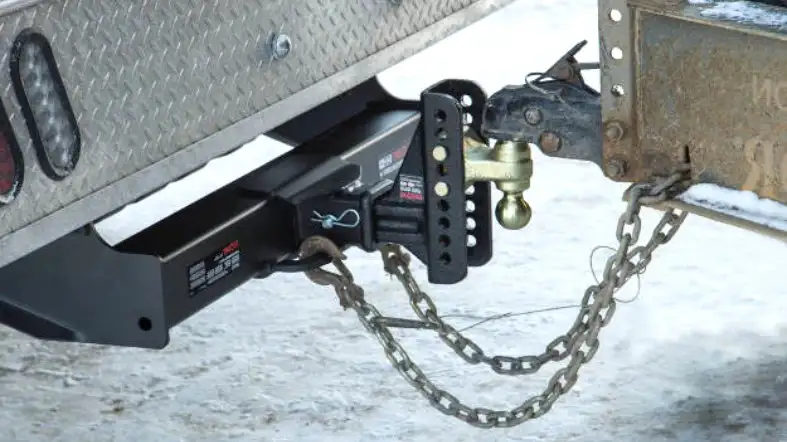
Each class of hitch is designed to carry a certain amount of weight, depending on the vehicle.
Class I Trailer Hitch
Class I trailer hitches are the smallest and lightest of all trailer hitches.
They are designed to carry a maximum weight of 2,000 lbs., making them ideal for smaller vehicles like cars or vans.
Class I trailer hitches can be used for carrying small cargo trailers or utility trailers that don’t require heavy loads.
Class II Trailer Hitch
Class II trailer hitches are also designed for smaller vehicles but can bear more weight than Class I hitches.
These hitches are meant to carry trailers that weigh up to 3,500 lbs., and can be used for a variety of applications, including boat trailers and small food trucks.
Class II trailer hitch receivers have a 2″ square opening, making them ideal for a wide range of accessories like bike racks, cargo carriers, and towing mirrors.
Class III Trailer Hitch
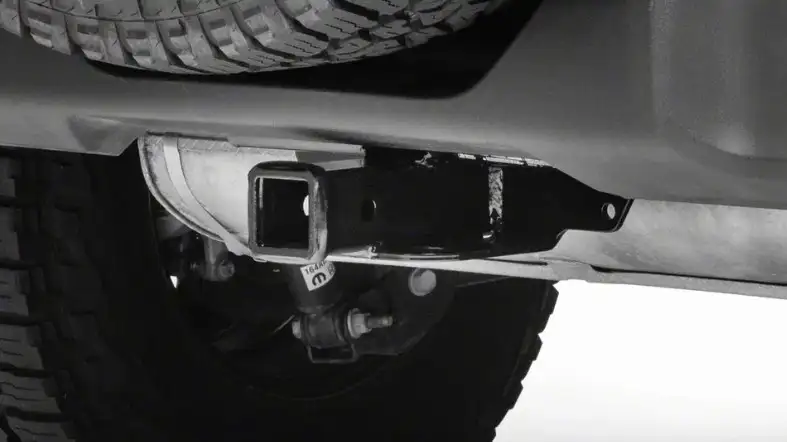
Class III trailer hitches are often used for heavier trailers, such as cargo and horse trailers.
This type of hitch is typically rated to tow load capacities of up to 6,000 lbs, making it a popular choice for many applications.
Also, Class III hitches are typically more durable than other classes, and they often come with additional features, such as added towing capacity or adjustable height settings.
Class IV Trailer Hitch
Class IV trailer hitches are the largest and heaviest of all classes.
They are generally used for very heavy trailers, such as travel trailers that carry a lot of cargo or utility trailers that carry heavy equipment.
These hitches are designed to handle the forces generated by large and extremely heavy loads, making them a good choice for anyone who regularly tows very large or heavy trailers.
Class IV tow load capacities of up to 10,000 pounds are available, making them suitable for most large trailers.
Class V Trailer Hitch
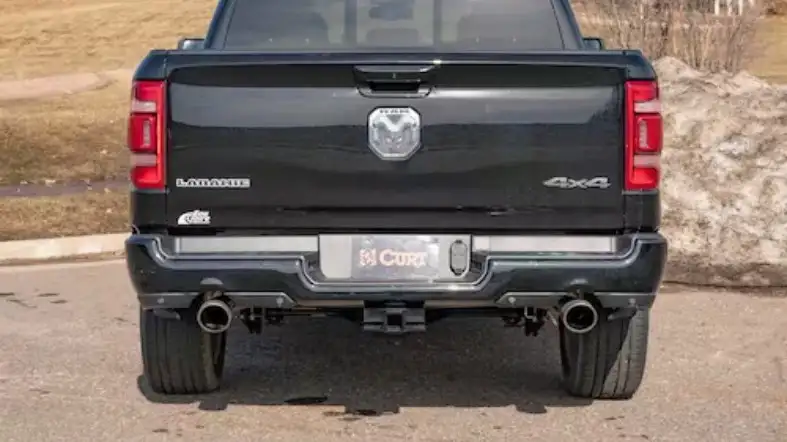
Class V trailer hitches are one of the most commonly used types of trailer hitches.
These hitches are designed to accommodate heavier loads and typically feature a square receiver that is either 1-1/4″ or 2″ in size.
They are equipped with several different pinholes, allowing you to choose the appropriate ball mount for your load.
Also, it can be installed on the rear of a vehicle, making it easy to access when you need to hitch or unhitch your trailer.
In addition, It can carry up to 20,000 pounds, making it ideal for towing large trailers and boats.
As you can see, there are many different types of trailer hitches available, each designed to accommodate specific applications and load requirements.
Whether you need a Class I, II, III, IV, or V hitch for your vehicle, it is important to choose the correct one for your needs and ensure that it is installed correctly.
By doing so, you can safely and successfully tow your trailer and prevent any damage or accidents.
Is Class 2 Or Class 3 Hitch Better?
There is no definitive answer to this question, as the choice between a Class 2 or Class 3 hitch will depend on several factors.
However, Class 2 hitch may be better suited for lighter loads and smaller vehicles, while a Class 3 hitch may be better for heavier loads or larger vehicles.
Both of these classes are very strong and durable, but they have different weight limits and features that can make them more or less suitable for your specific needs.
Ultimately, the best way to choose between a Class 2 or Class 3 hitch is to consider the types of loads you will be carrying, as well as the size and weight of your vehicle.
You should also consider whether you will need to install the hitch on the rear or front of your vehicle and compare the different features, benefits, and costs of each option.
With this information in mind, you can choose a Class 2 or Class 3 hitch that best meets your needs and helps you safely enjoy all of your trailer-towing adventures.
What’s The Difference Between A Class 3 And A Class 4 Hitch?
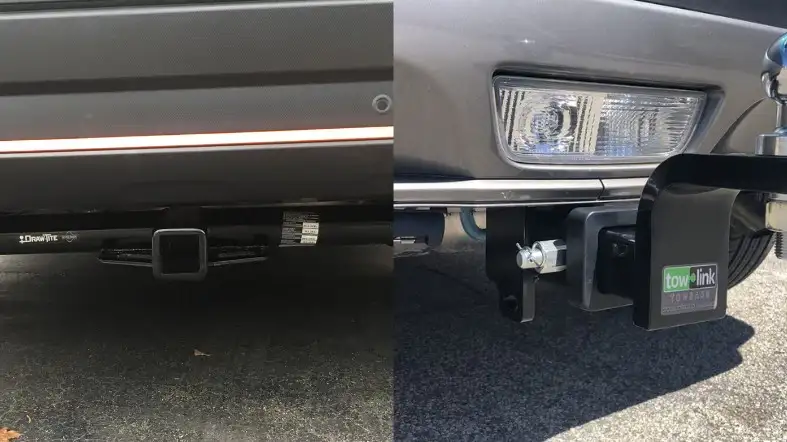
There are several key differences between class 3 and class 4 hitches.
Below we will explore some of the main differences, as well as their advantages and disadvantages.
One of the key differences between these two hitch classes is the weight limits that they support.
A class 3 hitch typically supports up to 6,000 lbs, while a class 4 hitch can support up to 10,000 lbs.
In addition, Class 4 hitches often come with additional features, such as adjustable height settings or increased durability.
On the other hand, Class 3 hitches may be a better choice for lighter loads or smaller vehicles, and they are typically more affordable than class 4 hitches.
Weighing the different pros and cons of each hitch class will help you choose the best option for your needs.
So which class of hitch is right for you?
The choice will depend on your specific towing needs and the type of vehicle that you have.
Whether you choose a class 3 or class 4 hitch, however, it is important to make sure that it is installed properly in order to ensure safe and successful towing.
How Much Does it Cost to Install A Class 1 Trailer Hitch?
The cost of installing a class 1 trailer hitch depends on the make and model of your vehicle, where you live, the installation company that you hire, and the parts required to install it properly.
The price can range anywhere from $175 to about $375 or more depending on these factors.
How Much Does It Cost To Install A Class 2 Trailer Hitch?
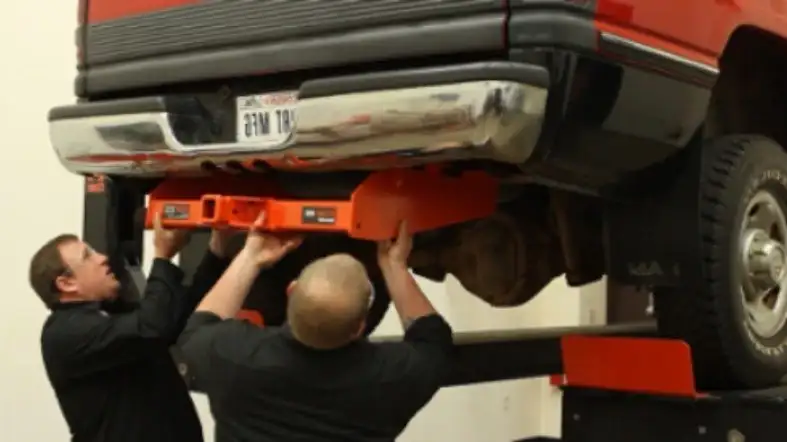
The install cost of a class 2 trailer hitch hovers is around $250 to $500, or even $650.
Keep in mind that this estimate of cost is not taking into account any expenses that may be incurred while other parts are removed, like taillights and license plate holders.
How Much Does it Cost to Install A Class 3 Trailer Hitch?
It is possible to install a class 3 trailer hitch at home, but you might want to seek professional help from an auto mechanic if you have no experience with automotive work.
Installing a class 3 trailer hitch usually costs between $510 to $950, depending on the make and model of your vehicle.
If you are able to do the installation yourself, you can expect to pay a bit less, as professional auto mechanics will charge an additional labor fee.
One of the most important factors that will affect the cost of installing a class 3 trailer hitch is your vehicle’s make and model.
How Much Does It Cost To Install A Class 4 Trailer Hitch?
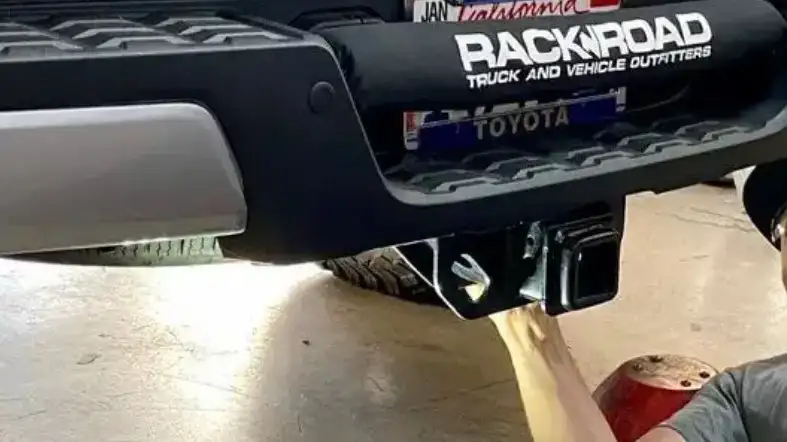
If you want to install a Class 4 trailer hitch receiver, you can expect to spend anywhere from $200 to $350.
The price will depend on the complexity of the installation and the level of expertise required.
Also, the type of vehicle will determine the cost as well.
If you are installing a hitch on a light truck or SUV, it will be less expensive than putting one on a car or other specialized vehicle.
How Much Does it Cost to Install A Class 5 Trailer Hitch?
You need to spend more money if you want to install a Class 5 trailer hitch.
A Class 5 hitch will provide the most weight carrying capacity and can handle heavy loads of over 6,000 pounds.
The installation is similar to that of a class 4 hitch but can be slightly more complex.
You will also spend between $200 and $350 on labor costs.
But you can also expect to spend a couple of hundred dollars more on the hitch itself.
Some online retailers will sell a Class 5 trailer hitch for over $300 and installation can cost as much as $650.
FAQs about the different classes of trailer hitches
Which Class Hitch Is The Strongest?
Class 5 trailer hitches are the strongest overall, as they can handle weights up to 20,000 pounds.
So if you need to tow a heavy load, this is the class you want.
Is Trailer Hitch Necessary?
It is not always necessary to install a trailer hitch, but it can be helpful depending on the size and type of vehicle you have.
It is good for towing small or large loads and can make navigating city streets or off-roading easier.
Can You Put A Trailer Hitch On Any Car?
In most cases, you can install a trailer hitch on any car.
However, it may require specific parts or accessories in order to do so.
You will also need to make sure that your vehicle is compatible with the class of hitch you want to install.
Conclusion
Now that you know more about the different classes of trailer hitches, you can make an informed decision about whether or not to install one on your vehicle.
Also, know when to use a trailer hitch and how much it will cost, so you can make the best decision for your needs.
So try to do your research and talk to an expert before making any final decisions.
